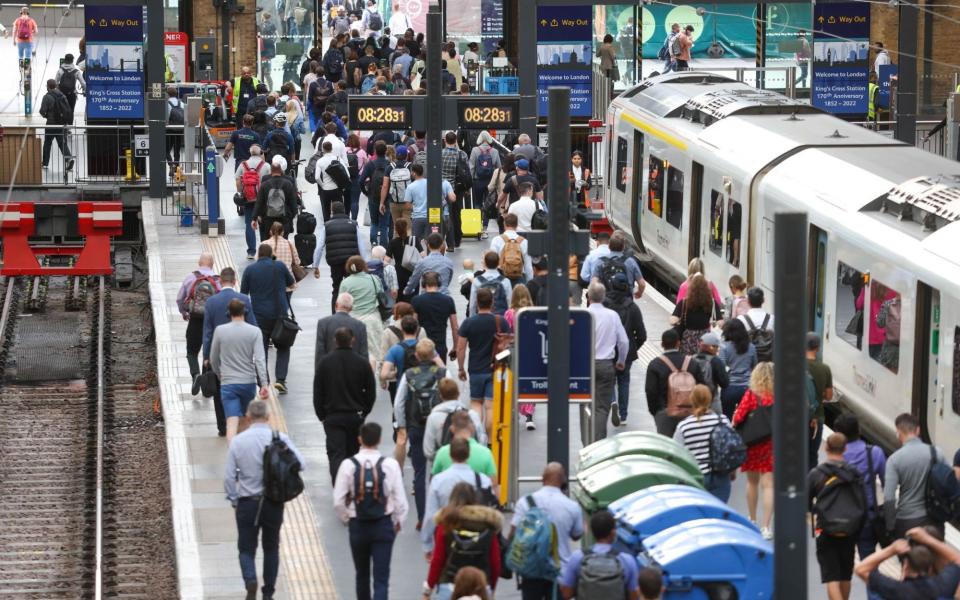Commuters face double-digit rise in rail fares

Rail travellers face a double-digit fare rise in the new year, leaving commuters hundreds of pounds out of pocket.
The Government usually increases train ticket prices by the retail prices index rate of inflation plus 1 percentage point each January. Based on the July RPI rate of 12.3pc, this means fares should rise 13.3pc in the new year.
This would add £433 onto the cost of the average season ticket, currently priced at £3,263 a year, according to analysis by campaign group Railfuture.
The Department for Transport had pledged not to pass on the full RPI rise to consumers, but has not yet decided which metric it will use to increase rail fares next year.
However, passengers are likely to be hit with a huge price jump regardless of the calculation used. Previously the Government has raised fares by RPI minus one percentage point, or experts said it could use the lower consumer prices index rate of inflation, which is typically lower than RPI.
Either option will result in double-digit fare increases for travellers.
Bruce Williamson, of Railfuture, warned travelling by train was already becoming unaffordable and huge price increases would deter passengers altogether.
Price rises threaten to pile more pressure on households already budgeting for higher energy, food and mortgage costs.
The Government has previously applied price rises of RPI minus 1 percentage point, which last happened in 2003, to calculate ticket costs. This would mean a 11.3pc price rise and an additional cost of £369 for the average season ticket holder.
A commuter travelling on a season ticket from Reading to London Paddington would pay £570 more, while someone commuting from Bristol to Cardiff would pay an additional £391.
Some experts have instead called for fare increases to be tied to the lower CPI rate. Based on July’s figure this would mean a 10.1pc price increase for rail passengers and would cost the average season ticket holder £329 more next year.
A passenger travelling on a season ticket from Glasgow to Edinburgh would pay £269 more under this metric.
Mr Williamson said: “Any rise to ticket prices should be capped at the rate of CPI. Using the RPI is obsolete and it’s long overdue that it’s consigned to the history books.”
The Government only dictates the price cap for roughly 45pc of train tickets in the UK, meaning pricing for more than half will be left to the discretion of rail companies.
A Department for Transport spokesperson said: "The Government is taking decisive action to reduce the impact inflation will have on rail fares during the cost of living crisis and will not be increasing fares as much as the July RPI figure.
"We are also again delaying the increase to March 2023, temporarily freezing fares for passengers to travel at a lower price for the entirety of January and February as we continue to take steps to help struggling households."
